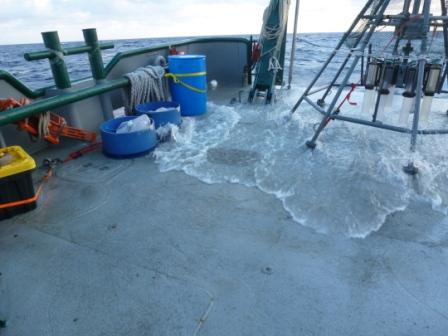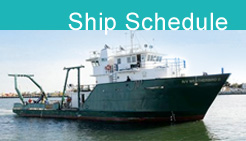Deep Sea Fish and Sediment Surveys in the Gulf
Science takes a backseat to the weather
February 9, 2013
Today began with a concerted effort by both the crew and science personnel of the Weatherbird II to deploy as much equipment and gather as much data as possible before an impending front arrived. As I mentioned previously, equipment cannot be deployed in rough seas. In fact, after having a conversation with some of the scientists on board, I discovered that a high percentage of ocean scientific missions are delayed in some way. Some never leave the dock, others are diverted to a safe port for a day or two or just wait at sea in a holding pattern until weather improves, or; in this case, the mission returns early. These decisions are based upon weather information available to the captain. Captain Boomer and Chief Scientist Leslie Schwierzke-Wade met, discussed the options, and acted accordingly. Decisions are based upon the safety of the vessel and everyone on board, the scientific equipment, and the ability to retrieve data. The danger component increases exponentially as the seas increase. I was told that on some of the research cruises, the Gulf of Mexico has been very calm and every station was easily covered. Right now we are carefully making our way safely back to port…….and it is rough!
| Print article | This entry was posted by greely on February 10, 2013 at 8:55 am, and is filed under Oceanic Updates. Follow any responses to this post through RSS 2.0. You can leave a response or trackback from your own site. |



